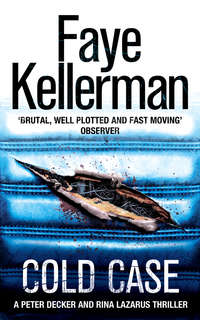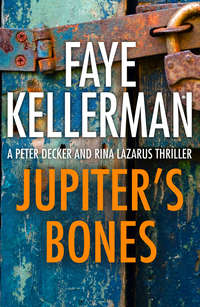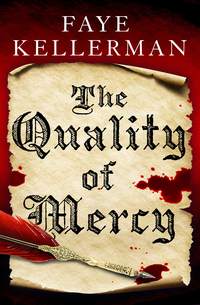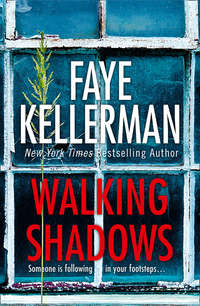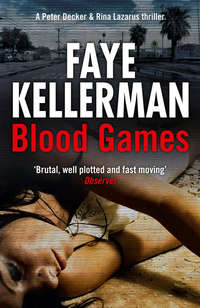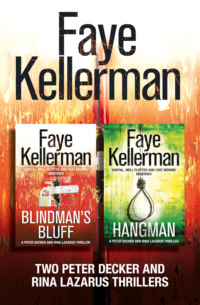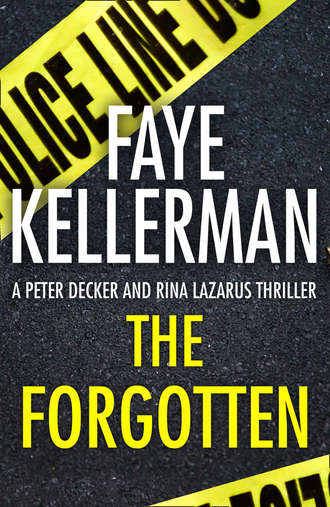
Полная версия
The Forgotten
Webster looked up, and Decker caught his eye, pointing to his office. A minute later, Tom came in and closed the door. His hair had been recently shorn, but several locks still brushed his eyebrows, giving him that “aw shucks” look of a schoolboy.
“Sorry about this morning, Loo.” Webster took a seat across Decker’s desk. “We all heard it was pretty bad.”
“Y’all heard right.” Decker sat at his desk and sifted through his computer until he found what he wanted. Then he pressed the print button. “What’s your schedule like?”
“I was just doing a follow-up on the Gonzalez shooting. Talking to the widow …” He sighed. “The trial’s been delayed again. Perez’s lawyer quit, and they’re assigning him a new PD who is not familiar with the case. Poor Mrs. Gonzalez wants closure and it isn’t going to happen soon.”
“That’s too bad,” Decker stated.
“Yeah, it’s too bad and all too typical,” Webster answered. “I have court at one-thirty. I thought I’d go over my notes.”
“You’re a college grad, Webster. That shouldn’t take you long.” Decker handed him the printout. “I want you to check this out.”
Webster looked at the sheet. “Preservers of Ethnic Integrity? What is all this? A Nazi group?”
“That’s what you’re going to find out.”
“When? Now?”
“Yes.” Decker smiled. “Right now.”
“What am I inquiring about? The temple vandalism?”
“Yes.”
“Am I supposed to be simpatico to the cause?”
“You want information, Tom; do what you need to do. As a matter of fact, take Martinez with you. You’re white, he’s Hispanic. With racists, you can do good cop, bad cop just by using the color of your skin.”
From the synagogue, Bontemps called Decker and told him about the three kids she had hauled in for prior vandalism. All of them had sealed records.
“How about a couple of names?” Decker asked.
Bontemps said, “Jerad Benderhurst—a fifteen-year-old white male. Last I heard, he was living with an aunt in Oklahoma. Jamal Williams—a sixteen-year-old African-American male—picked up not only for vandalism, but also petty theft and drug possession. I think he moved back east.”
“That’s not promising. Anyone else?”
“Carlos Aguillar. I think he’s fourteen, and I think he’s still at Buck’s correction center. Those are the ones I remember for vandalism. If you check with Sherri and Ridel, they might have others.” A pause. “Then again, Lieutenant, you might want to consider the bigger picture when it comes to tagging.”
Decker knew exactly to whom she was referring—a specific group of white, middle-to-upper-class males who were not only testosterone laden, but also terribly bored with life. Recently, after having been caught, the kids had secured their daddies’ highly paid lawyers before they had even been booked. The entire bunch had gotten off, the tagging expunged from the records, and in record time. Most of the kids were enrolled in private schools. For them, even drugs and sex had become too commonplace. Crime was the last vestige of rebellion.
“There was a group of them last year,” Wanda said. “Around twenty of them dressing like homies and trying to act very baaaad. They defaced a lot of property. If I thought about it, I could remember some names.”
“You could also have your ass sued for giving me the names,” Decker said. “As far as the records are concerned, they don’t exist. But I know who you mean.” A glance at the wrist told him it was eleven-twenty. “How’s it going over there?”
“Photographers are almost done. So are the techs. Your wife is waiting with a crew of people—all of them armed with soapy water pails, cleaning solutions, rags, and mops. They are ready to start scrubbing, and they are angry. If the police don’t hurry up, someone’s gonna get impaled on a broomstick.”
“That sounds like Rina’s doing,” Decker stated.
“You want to talk to her? She’s hanging over my shoulder.”
“I am not hanging,” Rina said, off side. “I am waiting.”
Wanda handed her the phone. Rina said, “Detective Bontemps has offered to spend her lunch hour helping us clean.”
“Is that a pointed comment?”
“Well, you might want to take a cue.”
Decker smiled. “I’ll be there as soon as I get off work. I will paint and clean the entire night if necessary. How’s that?”
“Acceptable, although by the time you get here, it may not be necessary.”
“I hear you have quite a gang.”
“Specifically, we’ve got the entire sisterhood here with brooms and buckets. Someone also made an announcement over at the JCC. Six people came down to clean and paint—one guy actually being a professional painter. Wanda, who’s been a doll, actually called up her church and recruited several volunteers. Even the people from the press have offered to help. We’d like to start already.”
“Detective Bontemps told me they’re almost done.”
“It’s just so … ugly, Peter. Every time I look at it, I get sick all over. Everyone feels the same way.”
“Who is down there from the press?”
“L.A. Times, Daily News, there are some TV cameras, but Wanda isn’t letting them in yet.”
“Good for her.”
“Have you narrowed down your suspect list?” Rina asked.
“I’m making a couple of calls. I’ll let you know if I have any luck.” He waited a moment. “I love you, darlin’. I’m glad you have so much support over there.”
“I love you, too. And those mumzerim haven’t heard the last from me. This isn’t going to happen again!”
“I admire your commitment.”
“Nothing to admire. This isn’t a choice, this is an assignment. Have you checked out the pawnshops?”
“What?”
“For the silver kiddush cup. Someone may have tried to pawn it.”
“Actually no, I haven’t checked out the pawnshops.”
“You should do that right away. Before the pawnbroker gets wind of the fact that he has something hot.”
“Anything else, General?”
“Nothing for the moment. Someone’s calling me, Peter. I’ll give you back to Detective Bontemps.”
Wanda said, “She’s quite the organizer.”
“That’s certainly true. Thanks for helping out.”
“It’s the least I could do.”
Decker said, “The taggers you were referring to, Wanda. Most of them went to private school.”
“Some of them did—Foreman Prep … Beckerman’s.”
“That could work in our favor. I’d have a hard time doing search and seizure with kids in public school. But in private school, they are subjected to different rules. Lots of the places have bylaws allowing the administration to open up random lockers to do contraband searches.”
“Why would a private school administrator agree to do that for us, sir?”
“Because it would look bad if they didn’t help us out. Like they were hiding something. Chances are I won’t find much … a secret stash or two.”
“What specific contraband would you be looking for, sir? Anti-Semitic material?”
“A silver wine cup.”
“Aha. That makes sense.”
“It’s worth a try,” Decker said.
But one not without controversy or consequences. Because in order to appear objective—and the police needed to appear objective—he’d have to search several of the private schools, including Jacob’s Jewish high school. He’d start with that one.

What’s the address?” Webster asked.
Martinez gave him the number while taking a big bite out of his turkey, tomato, and mustard sandwich, rye bread crumbs sprinkling his steel-wool mustache. He had been thinking about shaving it off now that it was more gray than black. But his wife told him that after all these years of something draping over his mouth, he probably had no upper lip left. “Any particular reason why Decker is using Homicide Dees for this?”
“Probably because I was in the squadroom.” He looked at his partner’s sandwich. “You carryin’ an extra one, Bertie?”
“Oh, sure.” Martinez pulled a second sandwich out of a paper bag. “You didn’t eat lunch?”
“When did I have time?” He attacked the food, wolfing half down in three bites. “Decker cornered me just as I was hangin’ up on the widow Gonzalez. The loo has a boner for this one.”
“Yeah, it’s personal.”
“It’s personal. It’s also very ugly, especially after the Furrow shooting at the JCC and the murder of the Filipino mail carrier. I think the loo wants to show the world that the police are competent beings.”
“Nothing wrong with us bagging a bunch of punks.” Martinez finished his sandwich and washed it down with a Diet Coke. “You know anything about these jokers?”
“Just what’s on the printout. They’ve been around for a while. A bunch of nutcases.”
Webster slowed in front of a group of businesses dominated by a 99 Cents store advertising things in denomination of—you guessed it—ninety-nine cents. The corner also housed a Payless shoe store, a Vitamins-R-Us, and a Taco Tio whose specialty was the Big Bang Burrito. Cosmology with heartburn: that was certainly food for thought. “I don’t see any Preservers of Ethnic Integrity.”
“The address is a half-number,” Martinez said. “We should try around the side of the building.”
Webster turned the wheel and found a small glass entrance off the 99 Cents store, the door’s visibility blocked by a gathered white curtain. No address, but an intercom box had been set into the plaster. Webster parked, and they both got out. Martinez rang the bell, which turned out to be a buzzer.
The intercom spat back in painful static. “We’re closed for lunch.”
“Police,” Martinez barked. “Open up!”
A pause, then a long buzz. Webster pushed the door, which bumped against the wall before it was fully opened. He pushed himself inside. Martinez had to take a deep breath before entering, barely able to squeeze his belly through the opening. The reception area was as big as a hatchback. There was a scarred bridge table that took up almost the entire floor space and a folding chair. They stood between the wall and the table, staring at a waif of a girl who sat on the other side of the table. Her face was framed between long strands of ash-colored hair. She wore no makeup and had a small, pinched nose that barely supported wire-rim glasses.
“Police?” She stood and looked to her left—at an interior door left ajar. “What’s going on?”
Martinez scanned the decor. Two prints without frames—Grant Wood’s American Gothic and a seascape by Winslow Homer—affixed to the walls by Scotch tape. Atop the table were a phone and piles of different-colored flyers. Absently, he picked up a baby-blue sheet of paper containing an article. The bottom paragraph, printed in italics, identified the writer as an ex-Marine turned psychologist. Martinez would read the text later.
“A synagogue was vandalized earlier today.” Martinez made eye contact with the young woman. “We were wondering what you knew about it.”
Her eyes swished like wipers behind the glasses. “I don’t know what you’re talking about.”
“It’s all over the news,” Webster said.
“I don’t watch the news.”
“You’ve got a radio on. I b’lieve it’s tuned to a news station.”
“That’s not me, that’s Darrell. Why are you here?”
“Because we know what this place is all about,” Martinez said. “We’re just wondering exactly what role you had in the break-in.”
A man suddenly materialized from the partially opened door. He was around six feet and very thin, with coffee-colored frizzy hair and tan eyes. He had a broad nose and wide cheekbones. Martinez wondered how this guy could be an ethnic purist when his physiognomy screamed a mixture of races.
“May I ask who you all are?” he said.
“Police,” Webster said. “We’d like to ask y’all a few questions, if that’s okay.”
“No, it’s not okay,” the man said. “Because no matter what I say, my words will be twisted and distorted. If you have warrants, produce them. If not, you can show yourself to the door.”
“That’s downright unneighborly of you,” Webster said.
The man turned his wrath toward the girl. “How many times do I have to tell you that you don’t let anyone in unless you’re sure of who they are!”
“They said they were the police, Darrell! So what do I do? Just leave them there, knocking?”
“And since when do you believe everything someone says? You know how people are out to get us. Did you even ask for ID?” Darrell turned toward them. “Can I see some ID?”
Webster pulled out his badge. “We’re not interested in your philosophy at the moment, although I reckon we’re not averse to hearing your ideas. Right now, we want to talk about a temple that was vandalized this morning. Y’all know anything about that?”
“Absolutely not!” Darrell insisted. “Why should we?”
“Is there anybody who can vouch for your whereabouts last night or early this morning?” Martinez asked.
“I’ll have to think about it,” Darrell said. “If I knew I was going to be raked over the coals, I would have established an alibi.”
“S’cuse me?” Webster said. “This is being raked over the coals?”
“You barge in—”
“She buzzed us in,” Martinez interrupted. “And you haven’t answered the question. Where were you and what were you doing last night?”
“I was home.” Darrell was smoldering. “In bed. Sleeping.”
“Alone?”
“Yes. Alone. Unless you count my cat. Her name is Shockley.”
“And this morning?” Webster inquired.
“Let’s see. I woke up at eight-thirty … or thereabouts. I don’t want to be held to the exact time.”
“Go on,” Webster pushed.
“I exercised on my treadmill … ate breakfast … read the paper. I got here at around ten-fifty, ten-thirty. Erin was already here.” His eyes moved from the cops’ faces to the pitchfork of the Grant Wood classic. “What exactly do you want?”
“How about your complete names for starters.”
“Darrell Holt.”
Martinez looked at the woman. “You’re next, ma’am.”
“Erin Kershan.”
Holt tapped his foot, then released a storage cell of aggression. “I had nothing to do with the vandalism of a synagogue! That isn’t what this group is all about! We don’t hate! We don’t persecute! And if you were told that, you’ve been misinformed. We do just the opposite of persecute. We encourage ethnic integrity. I applaud Jews who wish to congregate with one another. Jews should be with other Jews. African-Americans should be with African-Americans, Hispanics with Hispanics, and Caucasians with Caucasians—”
“And what exact ethnicity are you?” Webster asked Holt.
“I’m Acadian, if you must know.”
“You don’t sound like any Cajun I ever met,” Webster said.
“The original Acadians came from Canada—Nova Scotia specifically.” Holt gave off a practiced smile. It was condescending and ugly. “I am proud of my heritage, which is why I feel so strong about preserving cultural purity. And it has nothing to do with racism, because as you can see for yourself …” He pointed to his hair and nose. “I have black blood in me.”
“So you admit to being a mutt,” Webster said.
Holt bristled. “I am not talking about bloodlines, I’m talking ethnicity. My ethnicity is Acadian and it is my wish to preserve my ethnic purity. It is our opinion that the mixing of ethnicities has ruined civilization and certainly the individualization and pride of too many cultures. Immigration has turned everything into one big amorphous blob. Look at cuisine! You go out to a French restaurant when you’re in the mood for French food. Or perhaps a Mexican restaurant when you want enchiladas. Or Italian or American or Southern or Tunisian whenever you want the various cuisines. Imagine what it would be like if you mixed up all these nuances, all the flavors. Individually they work; together, they’d make for one horrible stew.”
“We are not beef Stroganoff, sir,” Martinez said. “Food isn’t the issue. Crime is the issue. Vandalism is a crime. What happened today at the synagogue constitutes a hate crime. The vandals will be found, and they will be punished. So if you know something, I suggest you get a load off now. Because if we come back, it’s going to be bad for you.”
“You have us all wrong.” Holt picked up a handful of leaflets and handed them to Martinez. “You’ll probably throw them away. But should you care to enlighten yourself enough to give us a fair shake, you’ll see that what we say makes a lot of sense.”
Erin broke in. “We have all kinds of members.”
“All kinds of ethnicities,” Holt added. “We cater to the disenfranchised.”
“Like who?” Martinez asked.
“Read our flyers. Our members write the articles.” He plunked a few from the table. “This one—on the ills of affirmative action—was written by an African-American, Joe Staples. This one is on English as a second language in America, written by an ex-Marine turned psychologist.” He focused in on Martinez. “Mr. Tarpin is just elucidating a well-known point. That in the United States we have only one official language and that language is English. If you read it, you’ll see that he has nothing against Hispanics. Everyone who lives in the U.S. should speak English.” He smiled. “Just like you’re doing right now.”
“I’m glad Mr. …” Martinez looked at the flyer. “Mr. Tarpin would approve of my English skills.”
“Which makes sense, being as Detective Martinez is American,” Webster stated. “Which means, if you’re Canadian, Mr. Holt, Detective Martinez is more of an American than you are. And if you advocate people staying with their own kind, maybe you should go back to Canada.”
Webster was florid with fury, his hands bunched into fists. Martinez, on the other hand, was completely impassive, glancing at Mr. Tarpin’s words on why English was such a wonderful, expressive, and large language. That was certainly true enough. Compared to Spanish’s blooming buds, English was an entire bouquet of flowers because it used words from a variety of other languages. The irony was lost on the author.
Martinez said, “Did you print these flyers yourself?”
“The PEI did. Absolutely.”
“Things were left behind in the synagogue,” Martinez said. “Nazi slogans that were printed on flyers just like these.”
“There’s a Kinko’s about a mile away from here,” Holt retorted. “Why don’t you ask them about it?”
Webster said, “And if we were to download your computer files, we wouldn’t find neo-Nazi groups bookmarked on your favorite places?”
“No, you would not,” Holt said confidently. “But even if you did find anything you deem as offensive, it still proves nothing. I did not vandalize anything!”
“There were also photographs left behind at the temple,” Martinez said. “Horrible pictures of holocaust victims—”
“That’s terrible,” Erin piped up. “That’s not our thing.”
“What is your thing?”
“Erin, I’ll handle this,” Holt said.
She ignored him. “Our thing is keeping ethnic identity pure. Gosh, we do it with animals—purebred this and purebred that. So what’s so wrong about wanting people to stay pure? You call it racism, but like Darrell stated, we are not racists! We are preservationists. We have nothing against Jews as long as they stick with Jews, and stop controlling the stock market—”
“Erin—”
“I’m just saying what Ricky says. He says the Jews control all the computers. Just look at Microsoft!”
“Erin, the head of Microsoft is William Gates III,” Holt said. “Does that sound like a Jewish name?”
“No.”
“That’s because William Gates III is not Jewish. If Ricky told you that, Ricky is full of shit!”
Erin’s mouth formed a soft O.
“Who’s Ricky?” Martinez asked.
“Some jerk …” Holt made a face at Erin. “Why do you bring him up?”
“You said he was your friend. Didn’t you go to Berkeley together?”
Holt rolled his eyes. To the cops, he said, “Ricky Moke is to the right of Hitler. Why don’t you go hassle him?”
“Where can we find him?”
“That’s a good question,” Erin said. “He hides out a lot.”
“Erin, shut up!”
“Don’t yell at me, Darrell. You were the one who gave the cops his last name.”
“Is this Moke a fugitive?”
Erin and Darrell exchanged glances. Holt said, “Moke tells lots of stories. Among them is this tale about his being a wanted fugitive.”
“What is Moke supposedly wanted for?”
“Bombings.”
The cops exchanged glances.
“Bombing what?” Webster asked. “Synagogues?”
Holt shook his head. “Animal laboratories. Not the actual cages, just the data centers. Ricky, by his own admission, is an animal lover.”

Torah Academy of West Hills had been molded from an old veterinary clinic. It must have been a thriving practice, and for big animals, because the examination rooms were extra large though still too small for classrooms. So the majority of actual learning took place in prefab trailers that filled the parking lot, save for a few science classes that were held in the animal morgue. The other clinic rooms had been turned into offices for the administration. Decker knew that the school, like everything in this community, was run on hope, volunteers, and the occasional out-of-the-blue donation.
Rabbi Jeremy Culter was in charge of secular studies. He was in his mid-thirties, and considered very modern for an Orthodox rabbi. In addition to being ordained as a rabbi, he had a Ph.D. in education and, most telling, he didn’t have a beard. He was fair complexioned and on the short side—trim with very long and developed arms. His office held a minimal look—a desk, a couple of chairs, and a bookshelf filled with sepharim—Jewish books—as well as books on psychology, sociology, and philosophy. The walls were cedar-paneled and still retained a faint antiseptic odor, along with an occasional waft of urine.
Usually, when Decker visited the school, he wore a yarmulke—a skullcap. But today he was there not as a father but in an official capacity. He didn’t wear a yarmulke when he worked because he often dealt with people who hated him in particular and cops in general, and he didn’t want to give any psycho-felon anti-Semite any more fodder to use against Jews. Still, sitting in front of Culter, he felt exposed without a head covering. If Culter noticed, he didn’t let on.
He said, “I can’t believe you actually think that one of our own boys—your son’s classmates—desecrated a shul and left concentration-camp photos around? Children with grandparents who are survivors!”
Decker looked at him. “How’d you find out about the specifics of the crime?”
“This is a small community. Do I really have to explain this to you?”
“Did my wife call you?”
The rabbi shook his head.
“Must have been one of the members of the bucket brigade.” Decker smiled at him. “I’ve just assigned you the role of my clergyman. Now I have confidentiality. Okay with you?”
Rabbi Culter said, “Go on.”
“This is the deal. We’re calling it a random drug check for the boys. I’m going to use that ruse with all the schools I’m going to. What I’m looking for is evidence of who might have done this. If you and your school cooperate with me, Rabbi, I’ll have muscle when dealing with the other privates.”
Culter nodded. “The law is an objective animal and so are the police.”
“Exactly,” Decker said. “If I searched my own son’s school, then what excuses can the other principals give me?”
“You’re getting resistance?”
“You’re the first school, so I’ll find out. But I can tell you that no swanky private school will freely admit having vandals in their student body. It doesn’t sit well with the parents who pay enormous tuition bills.” He pointed to his chest. “I can attest to that personally.”


